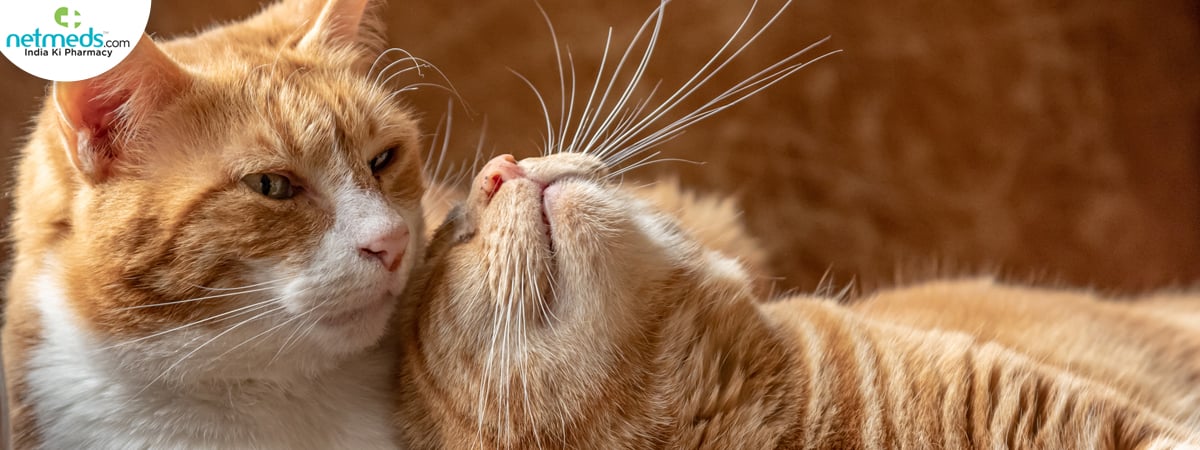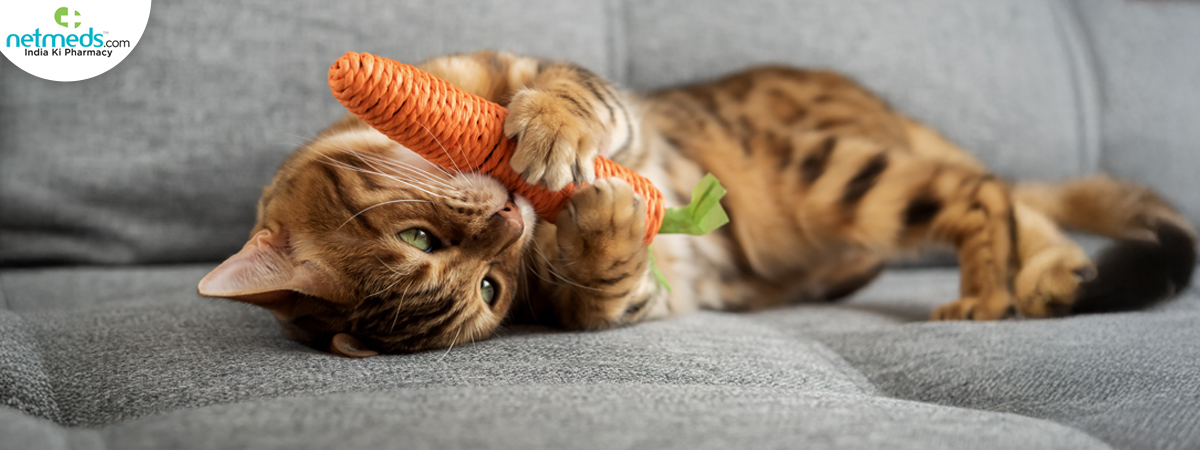As our feline companions age, they often develop multiple chronic health conditions during this time of their lives. A phenomenon known as feline comorbidity, health problems such as chronic kidney disease, diabetes, obesity, arthritis, and thyroid disorders can significantly affect your cat’s overall health and longevity. Managing multiple diseases in your beloved pet is a real challenge for both veterinarians and cat owners. While medication and regular veterinary care are essential, nutrition plays a crucial role in supporting overall health, minimizing symptoms, and improving their quality of life.

Why Do Feline Comorbidities Occur In Ageing Pets?
Feline comorbidities occur when a cat suffers from more than one chronic disease at the same time. A cat may have kidney disease and hyperthyroidism, or arthritis with obesity. These overlapping conditions can influence each other, complicating diagnosis and treatment. Some cats respond well to multiple treatments being performed on them at once, but others cannot handle this process. This can aggravate the health problems. Therefore, nutrition management for cats with chronic diseases must be personalized and carefully monitored by veterinarians.
Shop From Our Range Of Feline Health Supplements
Why Nutrition Matters In Managing Co-Morbid Problems In Cats?
Balancing dietary needs is critical to ensure that managing one disease doesn’t worsen another. Proper nutrition supports organ function, maintains muscle mass, and enhances immunity —key factors for cats with multiple chronic illnesses. Therapeutic diets designed for specific health conditions can help manage symptoms and slow disease progression. Here are some situations:
· Cats with chronic kidney disease benefit from low-phosphorus, moderate-protein diets.
· Cats with diabetes or obesity need controlled-carbohydrate, high-protein diets to regulate blood sugar and maintain a healthy weight.
· Cats with arthritis benefit from diets rich in omega-3 fatty acids, which help reduce inflammation and support joint health.
Key Nutritional Strategies For Feline Comorbidities
Nutrition has a key role in managing feline comorbidities. Proper intake of nutrients can support organ function, boost immunity, reduce inflammation, and enhance overall well-being and longevity in cats. The following tips can work well and help your feline buddy stay healthier during their old age:
Feed High-Quality Protein
Cats are obligate carnivores and require animal-based proteins. However, protein quantity should be adjusted for cats with kidney or liver disease.
Opt For Controlled Minerals
Some minerals, like phosphorus and sodium, should be given in lesser amounts to old cats. Lowering phosphorus supports kidney health, while reducing sodium helps control blood pressure and heart disease.
Add Healthy Fats And Omega-3 Fatty Acids
These two are vital for optimum body functioning. Fish oil and flaxseed reduce inflammation and support skin, joint, and heart health.
Manage Weight
Add soluble fibre to your cat’s diet. It aids digestion and helps manage obesity, a common cause of comorbidity in older cats.
Balance Optimum Hydration And Wet Food
Increasing water intake through wet food or broths benefits cats with kidney and urinary issues. Specialized prescription diets or custom-formulated homemade meals (under veterinary supervision) provide the best outcomes.
Go For Veterinary Guidance And Regular Monitoring
Every cat is unique. Veterinary guidance is essential when managing feline comorbidities through nutrition. Regular blood tests, weight checks, and dietary reviews help track progress and adjust meal plans accordingly.

Conclusion
When it comes to managing multiple chronic diseases in cats, nutrition is just as vital as medication. A balanced, disease-specific diet can enhance longevity, reduce complications, and significantly improve a cat’s quality of life. By working closely with veterinarians and focusing on proper nutrition, cat owners can help their feline companions live happier, healthier lives, even with comorbid conditions.
(This content is reviewed by Kalyani Krishna, Chief Content Editor)
Author Profile, Preeti Sharma
Preeti Sharma has a Master's in Electronic Media and Mass Communication and certification in short-term writing from Florida. With close to a decade of experience, she specializes in crafting engaging blogs on beauty, veterinary care, and healthy cooking. Preeti is proficient in video editing tools and produces captivating and informative content across multiple platforms.
References:
Evaluating ageing in cats
How to determine what is healthy and what is a disease
Jan Bellows, Sharon Centre, Leighann Daristotle
https://pmc.ncbi.nlm.nih.gov/articles/PMC10816674/
https://journals.sagepub.com/doi/10.1177/1098612X16649523



 Previous
Previous